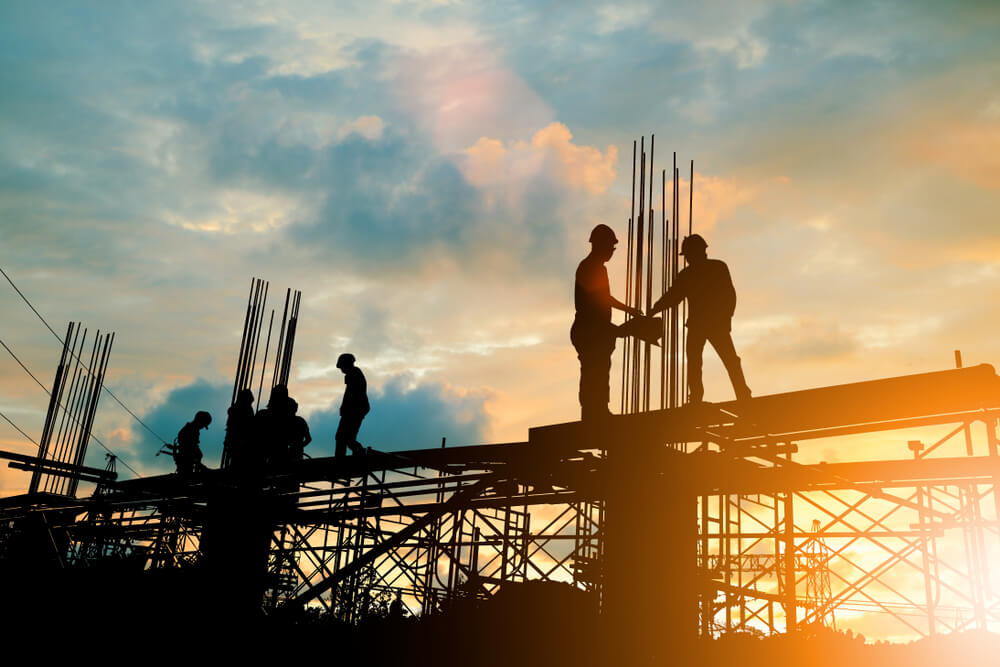Why no jubilation?
You’d have thought the agreement between House Speaker Nancy Pelosi, D-California, Senate Minority Leader Chuck Schumer, D-New York, and President Trump to spend $2 trillion on infrastructure would cause wild celebration.
Why, then, didn’t the church bells ring out, the fireboats send arcs of water into the air, and the stock of the construction companies, steel producers, asphalt purveyors and paint makers soar? It’s because nobody believed that we have the political coordination — sometimes expressed as political will — to do the deed and find the money.
Some money will be found eventually — after some disaster like the collapse of a bridge on an essential highway, or the failure of one of the critical tunnels under the Hudson River, which carry people and goods up and down the East Coast.
It’s the equivalent of “I’ll mind what I eat after my heart attack” kind of thinking.
The infrastructure from airports to ports, roads to bridges is in parlous shape. We are a First World nation, with Third World ways of moving ourselves and our goods.
Even if the Congress found the money through acceptable taxes (an oxymoron) or acceptable program cuts (another oxymoron), years of squabbling will ensue between the states, between their congressional sponsors, with every locality on bended knee with its begging bowl raised high.
Yet the national infrastructure is due to get a powerful boost not from Washington, but rather from the Internet of Things.
Forces are amassing remake cities, and in so doing to reimagine the infrastructure.
These forces are the companies, academics and visionaries who see a future city where drones will deliver packages, automobiles will connect with each other and eventually will be driverless, as they speed down highways that’ve been modified for them.
WiFi will be available everywhere and traffic will flow better not because of new highways but because its management will be outsourced to computers that will adjust traffic flows, change lights and direct interconnected cars to take the least-congested route.
Think GPS navigation that can control the journey automatically. Vehicles might suggest a route for you, warn you that the car, two spaces ahead, is weaving or that there’s an impending thunderstorm. This ability of cars and other vehicles to “talk” to each other is known as connectivity. Many of the features of this future conversation between vehicles and their environment are already being built into new cars.
It isn’t in use yet: Your car has a brain waiting to be engaged.
Potholes won’t vanish, but they’ll be identified as soon as they appear and near-automated machines will be dispatched to fill them.
The future of infrastructure is that it’ll be digitally managed to make it more efficient and to predict failures accurately. It won’t build bridges, tunnels, seaports or clear blocked canals. What it may do is move the needle in subtle ways.
More important will be the political impact of the big-company lobbies that will be unleashed across the political spectrum from the White House, to Congress, to the state capitals and the city halls. Big lobbies tend to get their way — and they will when companies like Amazon, Google, IBM, Verizon, AT&T, Cisco, Uber and Lime are demanding upgrades to the infrastructure to accommodate their digitized world.
At present, infrastructure rejuvenation is a political wish list. Soon it will get teeth, tech teeth.
Most important for the future of cities — from better lights and first responder systems to automated buses and ride-share vehicles — will be the sense that things are moving.
History shows us that the public is hungry for the new, less so for repairs. Look at the history of Apple and how product after product, from tablets to phones to watches, has been snatched up. Now think of that hunger applied to a smart city that will have exciting new technology, making them more livable and, it is hoped, more loveable.
Think of the coming infrastructure surge as the technological gentrification of cities.
It’s the tech giants and their lobbyists, abetted by public demand, who’ll redirect White House and congressional thinking about infrastructure in a world in which the invisible highways of the internet will be controlling the old visible and familiar ones.
The internet controls the vertical and the horizontal, so to speak.

 Follow
Follow
Leave a Reply